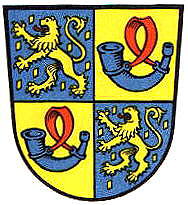Dillkreis: Difference between revisions
Jump to navigation
Jump to search
Knorrepoes (talk | contribs) m (Text replace - "'''Origin/meaning :'''<br/>" to "====Origin/meaning====") |
Knorrepoes (talk | contribs) m (Text replace - "|width="15%"|50 px|right |} " to "|width="15%"|50 px|right |}<seo title="Wappen, Gemeindewappen" /> ") |
||
| Line 3: | Line 3: | ||
|width="70%" align="center" |'''Heraldry of the World<br/>Civic heraldry of [[Germany]] - [[Deutsche Wappen|Deutsche Wappen (Gemeindewappen/Kreiswappen)]]''' | |width="70%" align="center" |'''Heraldry of the World<br/>Civic heraldry of [[Germany]] - [[Deutsche Wappen|Deutsche Wappen (Gemeindewappen/Kreiswappen)]]''' | ||
|width="15%"|[[File:Germany.jpg|50 px|right]] | |width="15%"|[[File:Germany.jpg|50 px|right]] | ||
|} | |}<seo title="Wappen, Gemeindewappen" /> | ||
'''DILLKREIS (DIL)''' | '''DILLKREIS (DIL)''' | ||
Revision as of 19:15, 5 November 2012
| Heraldry of the World Civic heraldry of Germany - Deutsche Wappen (Gemeindewappen/Kreiswappen) |
DILLKREIS (DIL)
State : Hessen
Incorporated into : 1976 Lahn-Dill Kreis
Origin/meaning
The arms were granted on April 21, 1938.
The arms are a combination of the arms of Nassau (lion) and Orange (Horn). The area around Dillenburg was the centre of the County of Nassau since the 11th century. Later it was the capital of the Orange-Nassau branch. The Princes of Orange-Nassau later became the Dutch Royal family. William of Nassau-Dillenburg, Stadhouder (governor) of the Netherlands, inherited in the 16th century the principality of Orange in the south of France. See also the Dutch national arms.
Literature : Stadler, K. : Deutsche Wappen - Bundesrepublik Deutschland. Angelsachsen Verlag, 1964-1971, 8 volumes.

